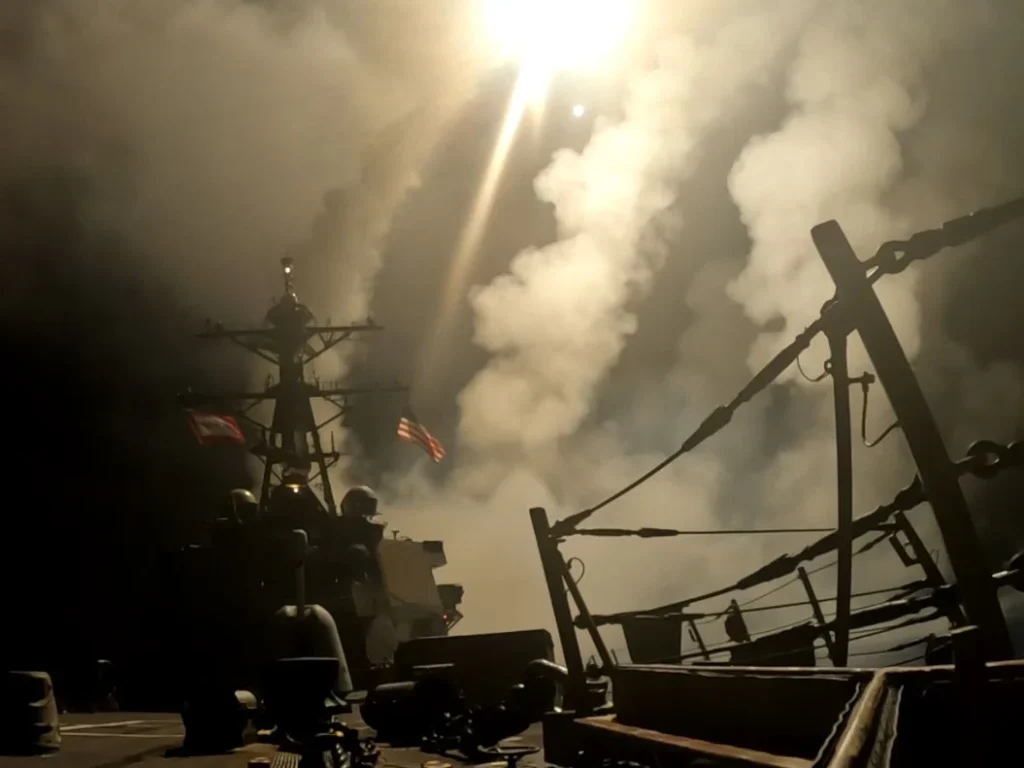Australia/Israel Review
A rough end to “Rough Rider” in Yemen
May 28, 2025 | Oved Lobel

On March 15, the United States military launched an intensive bombing campaign, codenamed “Operation Rough Rider”, targeting the Houthis, more accurately known as Ansar Allah, in Yemen.
That campaign, accompanied throughout by extremely threatening rhetoric from US President Donald Trump and his senior officials aimed at the group and, more importantly, its overseers in Iran, came to an end on May 6, when Trump suddenly announced a ceasefire.
Iran reportedly facilitated the ceasefire agreement, and didn’t suffer any consequences for its role in the Houthi aggression, despite the US correctly and repeatedly blaming it for the Houthi attacks on international shipping and US warships. US adversaries will have taken note of the chasm between the Trump Administration’s rhetoric and actions.
While the more than 1,000 US strikes killed hundreds of Houthi operatives and reportedly inflicted severe damage to their military infrastructure and weapons depots, it is unclear what, if anything, was accomplished in strategic terms by “Rough Rider”. As an organisation, the Houthis appear to still be essentially intact and able to function at every level.
What’s more, Iran will be able to use the current ceasefire to rearm and resupply the group, as it was doing even during the operation. While Israel will continue to independently and substantially retaliate against the Houthis for their ongoing missile attacks with strikes on energy infrastructure and ports, this will only have limited effects on Houthi capabilities and funding. Meanwhile, a reported ground operation against the Houthis by other local Yemeni forces that was mooted to happen as a result of “Rough Rider”, and which would have been vital for any enduring success, is now out of the question.
The White House’s initial March 15 announcement of the campaign said it was to restore freedom of navigation through the Red Sea for “American commercial and naval vessels.” Alongside international vessels, US ships had not been able to traverse that waterway safely since October 2023, when the Houthis began firing at both Israel and international shipping as part of the Iranian-led multi-front war that was started when Hamas invaded Israel on October 7 of that year.
But even the original announcement noted that the last Houthi attack against the US Navy before “Rough Rider” had occurred on Dec. 9-10, 2024. Meanwhile, the Washington Institute’s maritime incidents tracker recorded the last Houthi attack on a commercial ship on Nov. 18, 2024.
Although they’d halted their attacks earlier, the Houthis only officially announced the end of the campaign against international shipping on Jan. 19, the day a six-week Hamas-Israel ceasefire came into effect. The group said that it would no longer fire on any ships “except for vessels wholly owned by Israeli individuals or entities and/or sailing under the Israeli flag.” It also said it would stop firing even on these “upon the full implementation of all phases of the agreement.”
After his ceasefire announcement on May 6, Trump continues to insist that the Houthis had come to him desperate for a deal. A May 14 Reuters article reported that US intelligence had picked up vague “indications” that the Houthis wanted a ceasefire.
A more in-depth New York Times report from May 12, however, said Trump simply lost patience with the lack of concrete progress from the operation. Oman told Trump’s Middle East envoy, Steve Witkoff – who was already in the country for Omani-mediated nuclear negotiations with Iran – that it would mediate an off-ramp for Trump, who then gave this offer the green light. This corroborates the claims made by Houthi leader Abdulmalik al-Houthi that it was the US that decided to stop the campaign.
According to the Times report, Gen. Michael E. Kurilla, the head of US Central Command (CENTCOM) originally proposed an eight-to-ten-month campaign of intense airstrikes coupled with targeted assassinations of Houthi leaders to cripple the organisation. Trump shrunk that timeline to 30 days, and when he demanded metrics for success, CENTCOM could provide nothing but the number of munitions dropped.
Coupled with several reported near-misses, including one involving an F-35, along with the loss of seven MQ-9 drones, and two F/A-18s (as a result of accidents), the unsustainable munitions expenditure and a cost of more than US$1 billion, Trump decided to end the operation.
Trump also reportedly wanted something positive to announce prior to his Middle East tour in mid-May and, according to the aforementioned Reuters report, both the UAE and Saudi Arabia were worried that the Houthis would once again begin targeting them unless there was a ceasefire.
In the end, it does not appear the Houthis conceded anything of substance for the ceasefire or agree to deviate from their Jan. 19 position. After Trump’s announcement, senior Houthi officials reiterated their threat to Israeli ships, and more recently to any ship heading to Israel’s Haifa port.
This ceasefire, and the manner in which it was reached, appear likely to leave US allies – especially Israel – feeling isolated and with reduced confidence in US commitments and guarantees. The UK, which participated in Operation Rough Rider, was not informed of the ceasefire agreement prior to its announcement, and the agreement itself reportedly only covers US naval ships and commercial shipping.
Halting the constant Houthi missile and drone attacks on Israel was never included as an operational aim of the campaign, and Israel was not informed about the ceasefire. Following the announcement, US Ambassador to Israel Mike Huckabee said the US would only concern itself with the ongoing Houthi attacks on Israel if Americans were harmed.
Near-daily Houthi launches at Israel since the ceasefire, include seven missiles and two drones between May 6 and May 22, with no US response or even condemnation, confirm that Israel stands alone on this issue. This will negatively affect Israeli trust that US nuclear negotiations with Iran will lead to an agreement robust enough to prevent the regime developing nuclear weapons in the future.
As for the US ceasefire with the Houthis, it is extremely unlikely to restore true freedom of navigation in the Red Sea, as the Houthis can renew attacks on commercial shipping at any time. Shipping companies know this and will likely continue to avoid the area, as they had been doing even after the Houthis announced the end of attacks on Jan. 19.
The whole story of “Rough Rider” appears to follow a wider pattern of President Trump and his Administration issuing extreme threats but subsequently capitulating very quickly on most of the substantive points at issue, even while spinning this as a victory. This trend risks making the world a far more dangerous place for all US allies and partners, not just Israel.
Tags: Houthis, Iran, United States, Yemen






